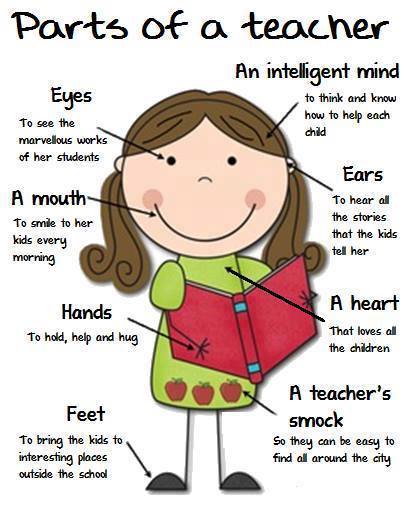ROLES OF A TEACHER IN THE 21ST CENTURY

Teacher Roles:
1. The Controller: The teacher is in complete charge of the class, what students do, what they say and how they say it. The teacher assumes this role when a new language is being introduced and accurate reproduction and drilling techniques are needed.
In this classroom, the teacher is mostly the center of focus, the teacher may have the gift of instruction, and can inspire through their own knowledge and expertise, but, does this role really allow for enough student talk time? Is it really enjoyable for the learners? There is also a perception that this role could have a lack of variety in its activities.
2. The Prompter: The teacher encourages students to participate and makes suggestions about how students may proceed in an activity. The teacher should be helping students only when necessary.
When learners are literally ‘lost for words’, the prompter can encourage by discreetly nudging students. Students can sometimes lose the thread or become unsure how to proceed; the prompter in this regard can prompt but always in a supportive way.
3. The Resource: The teacher is a kind of walking resource center ready to offer help if needed, or provide learners with whatever language they lack when performing communicative activities. The teacher must make her/himself available so that learners can consult her/him when (and only when) it is absolutely necessary.
As a resource the teacher can guide learners to use available resources such as the internet, for themselves, it certainly isn’t necessary to spoon-feed learners, as this might have the downside of making learners reliant on the teacher.
4. The Assessor: The teacher assumes this role to see how well students are performing or how well they performed. Feedback and correction are organized and carried out.
There are a variety of ways we can grade learners, the role of an assessor gives teachers an opportunity to correct learners. However, if it is not communicated with sensitivity and support it could prove counter-productive to a student’s self-esteem and confidence in learning the target language.
5. The Organizer: Perhaps the most difficult and important role the teacher has to play. The success of many activities depends on good organization and on the students knowing exactly what they are to do next. Giving instructions is vital in this role as well as setting up activities.
The organizer can also serve as a demonstrator, this role also allows a teacher to get involved and engaged with learners. The teacher also serves to open and neatly close activities and also give content feedback.
6. The Participant: This role improves the atmosphere in the class when the teacher takes part in an activity. However, the teacher takes a risk of dominating the activity when performing it.
Here the teacher can enliven a class; if a teacher is able to stand back and not become the center of attention, it can be a great way to interact with learners without being too overpowering.
7. The Tutor: The teacher acts as a coach when students are involved in project work or self-study. The teacher provides advice and guidance and helps students clarify ideas and limit tasks.
This role can be a great way to pay individual attention to a student. It can also allow a teacher to tailor make a course to fit specific student needs. However, it can also lead to a student becoming too dependent or even too comfortable with one teacher and one method or style of teaching.
For further reference:


































